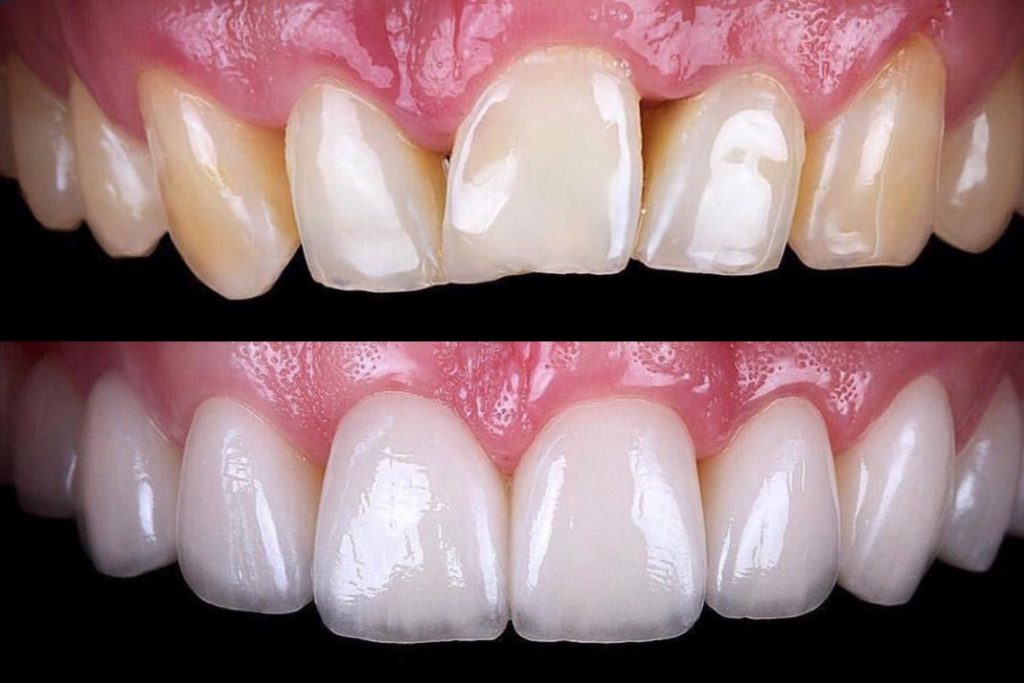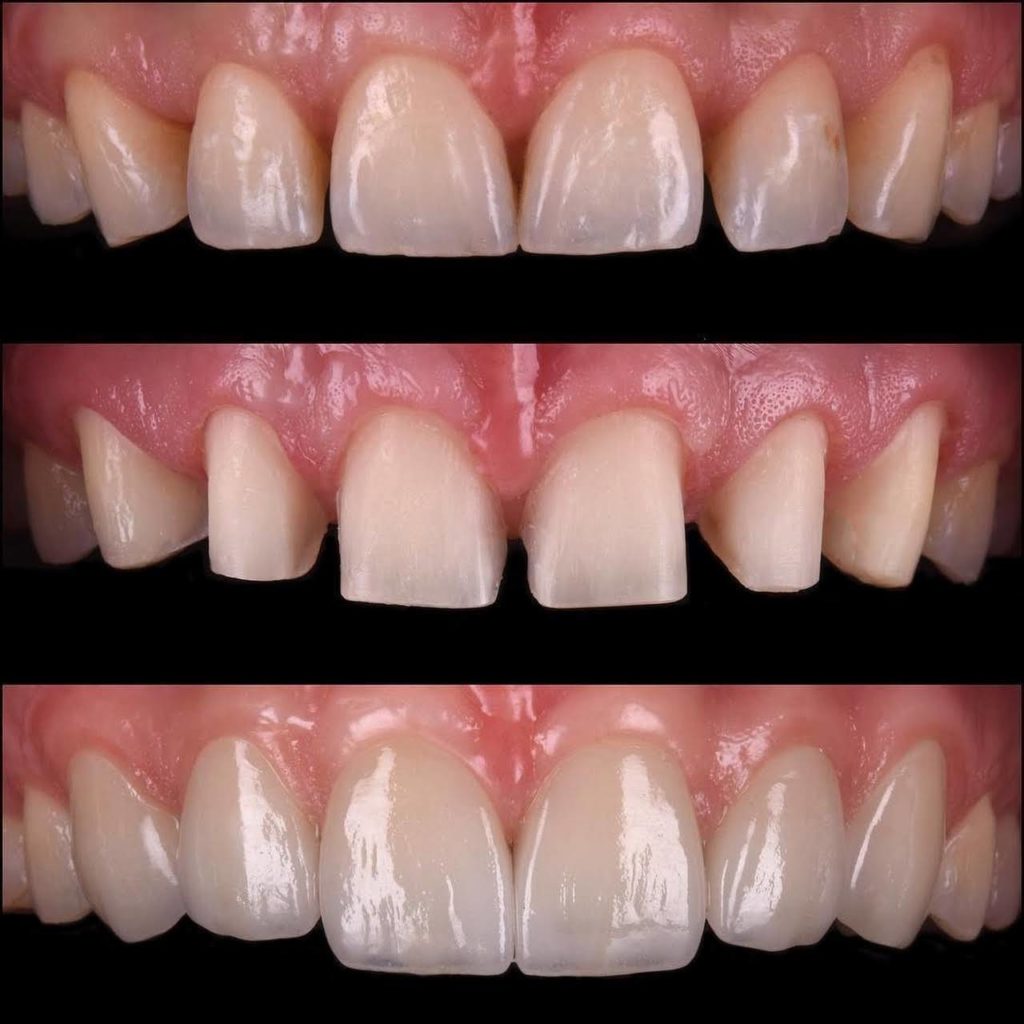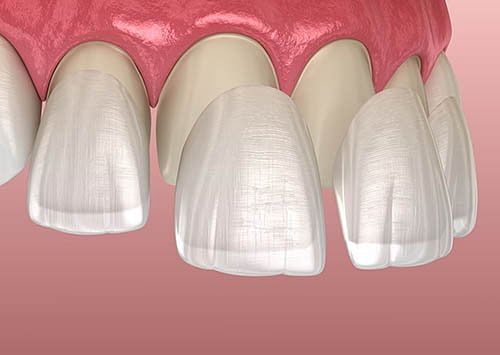Veneers
VENEERS
Dental veneers are a possible solution to help you achieve the look you desire. They are thin, custom-made covers that adhere to the front surface of teeth to improve esthetic. With dental veneers, you can obtain a natural shaped look, change in tooth color, size or length.
INDICATIONS FOR DENTAL VENEERS
⦁ Stained or darkened teeth caused by fluorosis, tetracycline or root canal treatment.
⦁ Fractured teeth
⦁ Chipped or misaligned teeth
⦁ Modify teeth shape
⦁ Diastema closure (gaps between teeth)
⦁ Enamel loss by erosion
Before you get veneers, teeth and gums must be healthy. You must be aware that the dental preparation is irreversible and in some cases, veneers are not a good choice for patients who grind or clench their teeth, because they would chip or break.
TYPES OF MATERIALS FOR DENTAL VENEERS
Veneers are made of porcelain or composite resin material. Your dentist will help you choose the material that is best for you.
⦁ Porcelain: They are strong and long-lasting, have a natural-looking surface and the material doesn’t stain.
⦁ Resin composite: These restorations may need fewer visits to the dentist, they cost less than porcelain veneers, and are easy to fix if damaged. Resin composite is not as strong and wear-resistant as porcelain.
PROCEDURE
The dentist will remove a small amount of enamel from the front and sides of the teeth, either for porcelain or resin composite veneers. Veneers made of resin composite are made directly in the mouth and the procedure lasts approximately one appointment.
For porcelain veneers:
⦁ A dental impression is taken
⦁ The impression is sent to the dental laboratory to custom-made the porcelain veneers
⦁ The dentist will try the veneers in your teeth to check fit and shape
⦁ Veneers are bonded to the tooth
HOW LONG DOES DENTAL VENEERS LAST?
Porcelain veneers can last between 7-15 years and resin composite veneers can last between 5-7 years. After this period, you may need to replace your veneers.
DENTAL CARE AFTER GETTING VENEERS
⦁ Maintain a good oral hygiene
⦁ Avoid biting your fingernails and chewing on hard objects.
⦁ Inform your dentist if you feel any interference when you bite or eat.
⦁ It is necessary to visit your dental professional for regular follow-up checkups.
Images



